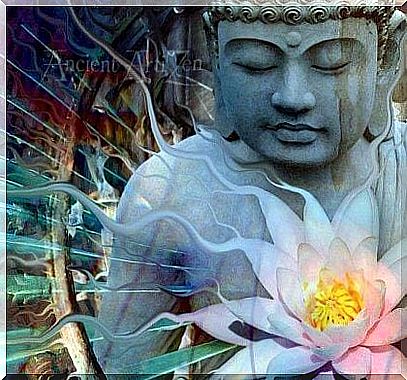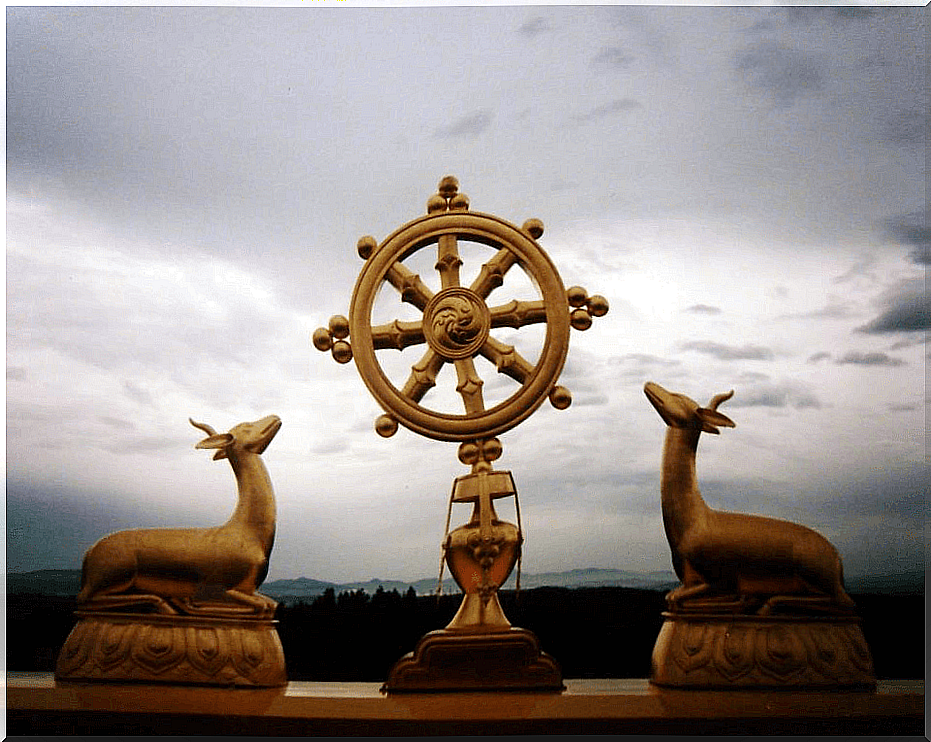The 4 Noble Truths Of The Dharma

It is curious how the teachings within Buddhism or Hinduism offer a broad and rich perspective for our personal growth. And among them is the Dharma. Each one of us is free to assume it or not, to accept concepts such as reincarnation or that more spiritual vision of life.
Leaving aside those aspects, possibly more controversial, it never hurts to take these teachings into account to reflect, to accept that all people share the same fears and the same needs and that, in essence, we can use similar strategies to achieve that inner well-being.
Dharma, in Sanskrit, has different definitions, but in all of them the same essence emerges: it is the Buddha’s law and also its protection turned into a purpose, a principle that must be executed with nobility.
People are here “wrapped” in a physical appearance to obtain an apprenticeship and to get closer to that spiritual part that, in truth, is our authentic nature. Let’s talk about the four truths of the Dharma today, and try at least to reflect on these interesting principles.
The 4 noble truths of the Dharma

First of all, we have to remember that the Dharma is always represented in the form of a wheel. This was the way in which, supposedly, Buddha transmitted his laws to the world, later acquired by the different schools that today continue to apply his principles and his religion.
This wheel symbolizes, in turn, that vital movement of death and rebirth, beginning and end that never stops, a wheel where the Buddha’s teachings spread, escape, and where humanity has the opportunity to receive these principles to open your mind and move on. Let’s now see the 4 truths that are inscribed in it.
1. Dissatisfaction
It seems that there is a common agreement in considering that one of the most common sensations of humanity is a constant emptiness where we harbor our existential fears and pains. Happiness seems to be that rare commodity that we always dream of but rarely achieve.
So why is this dissatisfaction? This vital anguish of the human being? The second of the Dharma truths clarifies why.
2. The cause of discontent: attachments

People tend to establish unhealthy attachments with everything that surrounds us. According to the teachings of the Dharma, people crave, cling, material goods and even other people fostering our own selfishness, our own vulnerabilities.
3. Life suffering can be stopped
For Buddhism, all of us are actually spiritual beings who seek a purpose: to ascend through wisdom, through humility and the search for truth, shedding all those material tricks and learning from mistakes made.
And until that happens, the wheel of Dharma will never stop turning, we will have infinite possibilities to correct our faults, to heal that suffering, that vital pain. For this we will have to get rid of our attachments, understanding in turn, that every action has an effect and a consequence.
Everything you think, do and even declare aloud, generates a result in you and in those around you. Because we are all one whole, because you are not oblivious to that balance and you need to reach the heart of the Dharma wheel or yourself to be virtuous, to generate good kharma.

4. The path that leads to the end of suffering
What this fourth law really evokes is the need to be aware of ourselves and to find a purpose in this life, a “noble purpose”, something that enriches you and others.
To do this, always remember that you should not fix your needs on the blind obsession to “possess” people or things “… It is always more appropriate to practice detachment, or else, you will feel the effects of suffering in any of its forms.
The last of the truths of the Dharma explains that to reach this act of inner healing, we must apply the so-called “Eightfold noble path” to our day to day, and that it would have these interesting principles:
- A correct understanding of things and your own interior.
- A correct thought that helps us to see reality, without artifice.
- It is also necessary to know how to use the correct words. Those that do no harm, those that offer peace, balance and love.
- Focus your life on that action or purpose that is really appropriate: do good, be honest, seek the truth of things.
- Correct occupation. Once you understand what your purpose in life is, put it into practice.
- Strive to do good, be persistent.
- Focus your attention.
- Focus on that noble purpose. Never decay.
As we can see, the four noble truths of the Dharma are teachings that make us reflect on the causes of our unhappiness and that somehow offer us the necessary impetus to continue growing on a personal level.









